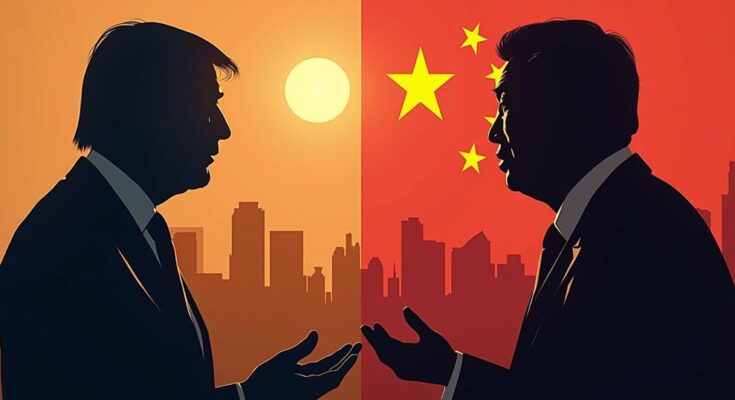U.S. Ambassador to China, Nicholas Burns, asserts that the Biden administration is actively preventing a ‘second China shock’ by discouraging overreliance on Chinese goods, particularly in the electric vehicle sector. He advocates for global cooperation against China’s economic practices and warns of more sanctions against Beijing if it continues to assist Russia. This response reflects lessons learned from past economic disruptions linked to Chinese imports.
The Biden administration is taking robust measures to prevent a repetition of the economic hardships that arose from the first influx of Chinese imports in the early 2000s, often referred to as the ‘first China shock.’ United States Ambassador to China, Nicholas Burns, emphasized this commitment during his virtual address from Beijing at the Transatlantic Forum on GeoEconomics, organized by the Atlantic Council. He articulated the administration’s stance against what he termed a potential ‘second China shock,’ which refers to the current surge in China’s electric vehicle sector and other industries that could destabilize global markets. Ambassador Burns called for collaboration with European allies to jointly address China’s overproduction and the implications of their support for Russia’s military actions. He further indicated that the United States might impose additional sanctions on Chinese entities if they continue supplying dual-use items to Moscow, which could facilitate military operations in Ukraine. He urged nations to diversify their sources for critical materials to enhance resilience against over-reliance on any single economy, referencing the lessons learned from the pandemic.
The term ‘China shock’ signifies significant economic adjustments caused by the sudden influx of cheap Chinese imports that transformed global manufacturing dynamics. This phenomenon, particularly notable during the early 2000s, engendered substantial job losses in the manufacturing sector in the United States, with estimates indicating that over one million jobs were displaced. The current geopolitical climate, marked by the ongoing war in Ukraine and the regulatory response to Chinese industrial growth, has sparked concerns that similar economic consequences could arise if measures are not put into place to mitigate China’s expanding influence and production capacity in critical sectors, such as electric vehicles.
In summary, the Biden administration underlines its commitment to preventing a resurgence of the economic disruptions experienced in the past due to Chinese imports. Through proposed tariffs and potential sanctions, the United States aims to maintain economic stability and protect domestic manufacturing jobs. The emphasis on international collaboration to address these challenges reaffirms the need for proactive measures in the current geopolitical landscape.
Original Source: www.scmp.com




